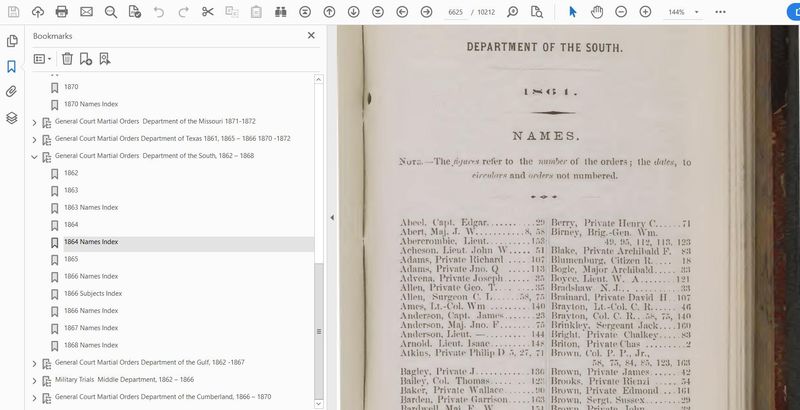
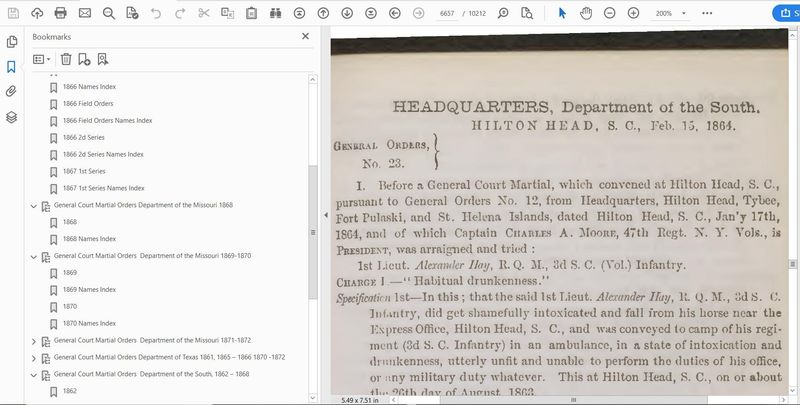
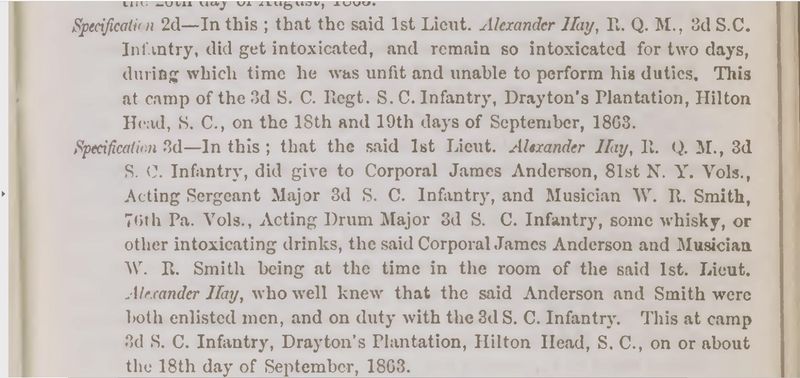
U.S. Army Courts-Martial Records: Civil War and Reconstruction Era
$19.50
Description
Civil War Military Trials: 1861-1872
- 1861-1865: U.S. Civil War: The backdrop for the majority of events covered. The establishment of military courts and commissions is directly tied to the conflict.
- Military commissions established under Union martial law to try civilians accused of aiding the Confederacy.
- 1861-1863: General Court Martial Orders for the Department of the Missouri are recorded.
- 1862-1867: General Court Martial Orders for the Department of the Gulf are recorded.
- 1862-1868: General Court Martial Orders for the Department of the South are recorded.
- 1863-1866: Military trials of the Middle Department are recorded.
- Undated (likely during the Civil War):Zaidee J. Bagwell attempts to send a letter and package to W. F. Luckett, a Confederate soldier, resulting in her trial.
- Private Louis Ahlus is court-martialed for the murder of his superior officer, Lieutenant Frank Wolf.
- Private James Murphy is court-martialed for desertion.
- Andrew Laypole, a civilian, is tried and convicted by a military commission for being a spy and engaging in guerilla warfare.
- Colonel Charles L.K. Sumwalt is court-martialed for drunkenness and conduct unbecoming an officer.
- 1865-1866: General Court Martial Orders for the Department of Texas are recorded.
- 1866-1870: General Court Martial Orders for the Department of the Cumberland are recorded.
- 1866-1867: General Court Martial Orders for the Department of the Missouri are recorded.
- 1868: General Court Martial Orders for the Department of the Missouri are recorded.
- 1869-1870: General Court Martial Orders for the Department of the Missouri are recorded.
- 1870-1872: General Court Martial Orders for the Department of Texas are recorded.
- 1871-1872: General Court Martial Orders for the Department of the Missouri are recorded.
Cast of Characters
- Zaidee J. Bagwell: A civilian resident of St. Louis, Missouri. She was a Confederate sympathizer who attempted to send aid and messages to a Confederate soldier, W.F. Luckett. She was initially sentenced to house arrest but it was changed to banishment during the war, with a $5,000 bail.
- W.F. Luckett: A Confederate soldier to whom Zaidee Bagwell attempted to send a letter and gifts.
- Ed Barton, Willie Halleck, and Shod: Other rebels referenced in Zaidee’s letter to Luckett.
- Mr. Flannigan: Another rebel referenced in Zaidee’s letter.
- Private Louis Ahlus: A Union soldier who was court-martialed for the murder of his superior officer, Lieutenant Frank Wolf.
- Lieutenant Frank Wolf: A Union officer, the superior officer of Private Louis Ahlus, who was murdered by Ahlus.
- Private James Murphy: A Union soldier who was court-martialed for desertion.
- Andrew Laypole: A civilian tried by a military commission for spying and engaging in guerilla warfare against the United States. He was sentenced to death by hanging.
- Colonel Charles L.K. Sumwalt: A Union officer of the 138th Regiment Pennsylvania Volunteers. Court-martialed for drunkenness and conduct unbecoming an officer, he was dismissed from the military.
- Zaidee Bagwell’s Father: He intervened on his daughter’s behalf during her trial. The sentence was mitigated on account of his intervention and his agreement to post a $5,000 bail.
Civil War: U.S. Army Civil War and Reconstruction Era Courts Martial Records
This collection contains 10,200 pages of U.S. Army records from military trials held during the Civil War and Reconstruction, covering both general courts-martial and military commission hearings.
These records document the proceedings of military trials, including general court-martial orders and military commissions, spanning from 1861 to 1872. They are composed of bound, typeset summaries of case records, which highlight the key information from the original documents and legal papers.
These summaries typically include the accused’s name, rank or civilian status, the charges against them, a description of the accusations, the defendant’s pleas, the verdict, the sentence, and any other significant details. Many summaries also contain the signature of the presiding officer, and most volumes have an index of names.
The charges detailed in these documents vary widely, encompassing offenses such as murder, rape, espionage, treason, desertion, embezzlement, theft, behavior unbecoming an officer, disorderly conduct, disobedience, disloyal statements, drunkenness, and various other minor violations of military regulations.
Sentences ranged in severity, from a public reprimand while standing on a barrel in front of the regiment, to expulsion from the Army, solitary confinement with a restricted diet, imprisonment with hard labor, imprisonment with hard labor while shackled, and ultimately, death by hanging or firing squad.
Some of the trials documented here involved civilians, not soldiers, who were accused of assisting the Confederacy during the Civil War. Military commissions, which were special courts, were created under Union martial law during the Civil War to try private citizens. Zaidee J. Bagwell, a civilian, faced a military tribunal. She was accused of breaking wartime regulations. This St. Louis, Missouri, woman had tried to send a love letter, gloves, and a photo to W. F. Luckett, who was fighting against the U.S.
The trial record includes the full text of her letter, which ended with, “Send my love to all the rebels, Ed. Barton, Willie Halleck and Shod., and especially to you. Write me a long letter as soon as you can. We all send our love to you and Mr. Flannigan, and hope you will give the Union soldiers your best shot, and shoot some extra ones for us. You’ll find many kisses in this letter. Write soon, from your true and devoted rebel, ZAIDEE J.”
Bagwell denied all charges, but the commission found her guilty on every count. She was initially sentenced to house arrest for the rest of the rebellion, forced to swear loyalty to the U.S., and to pay a $1,000 bond. However, her father’s intervention led to a reduced sentence. Instead, she was banished from the U.S. for the duration of the rebellion, allowing her to go to the South. Her father had to pay a $5,000 bond, and she had to promise not to help the rebels.
These records are found in the following collections:
Military Trials Middle Department, 1863 – 1866
General Court Martial Orders Department of the South, 1862 – 1868
General Court Martial Orders Department of the Gulf, 1862 – 1867
General Court Martial Orders Department of the Missouri 1861 – 1863 Military court orders were issued by the Department of Texas for the years 1861, 1865 through 1866, and 1870 through 1872. The Department of the Cumberland generated general court martial orders from 1866 to 1870. The Department of the Missouri produced similar orders during 1866 and 1867, again in 1868, then from 1869 through 1870, and finally from 1871 through 1872.
The provided documents include a page from the court martial record of Private Louis Ahlus, who was accused of murdering his superior, Lieutenant Frank Wolf.
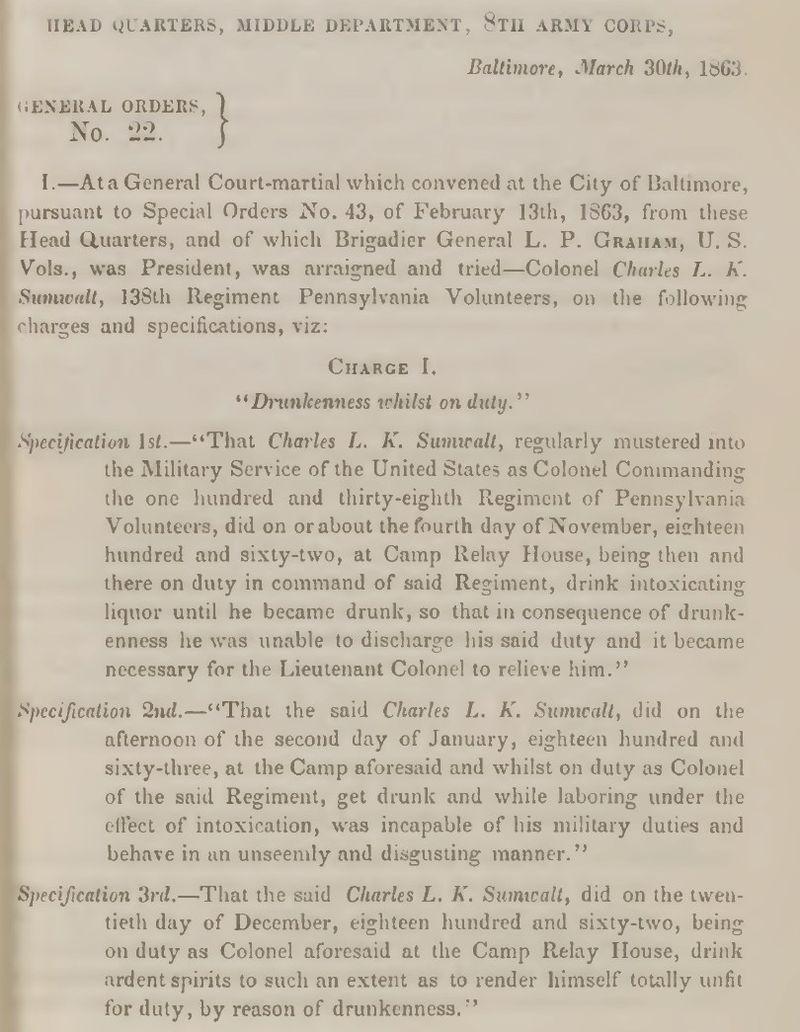
Another page comes from the court martial record of Private James Murphy, who was charged with desertion.
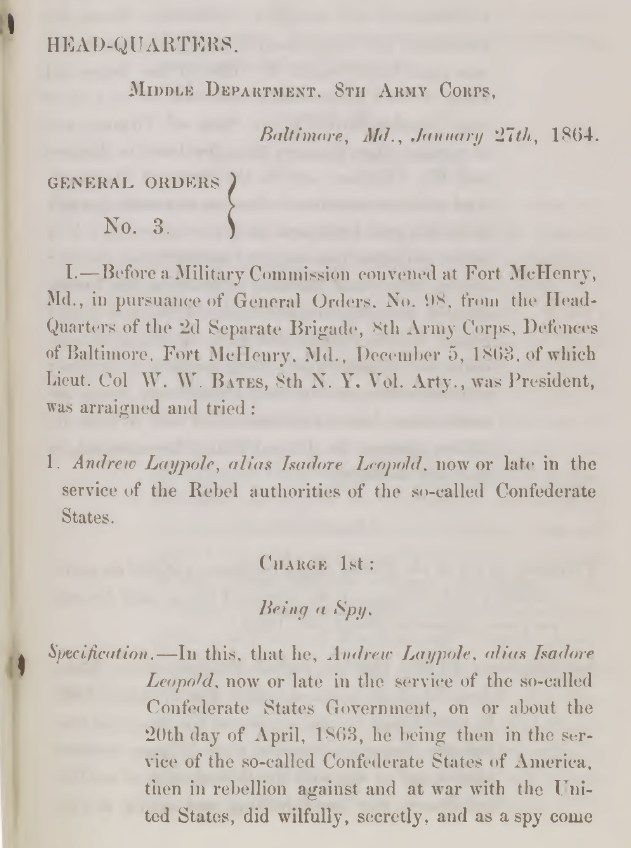
There are also pages from the military commission trial of Andrew Laypole, a civilian who was found guilty of spying and engaging in guerilla warfare against the US; he was sentenced to death by hanging. Finally, there is a page from the trial record of Colonel Charles L. K. Sumwalt, who was found guilty on nine of sixteen charges including drunkenness and conduct unbecoming an officer, and was dismissed from the U.S. milit
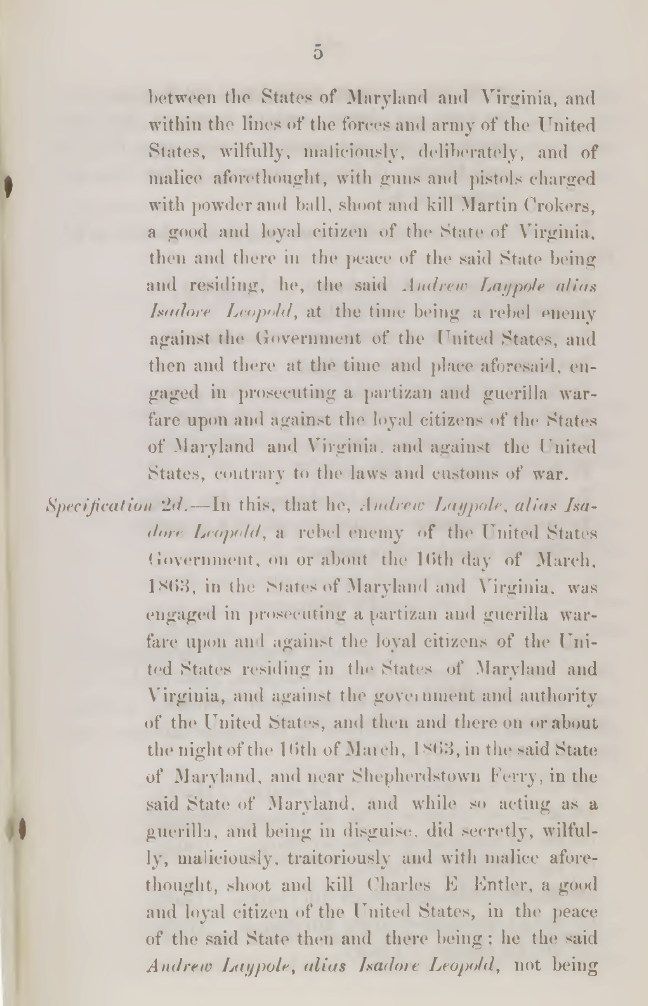
Related products
-
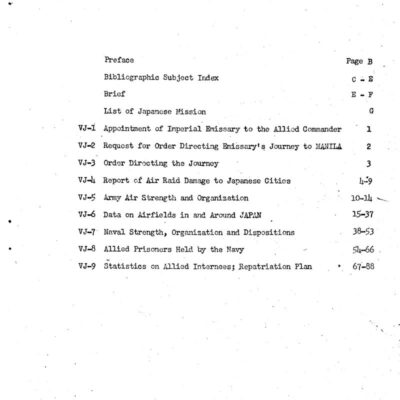
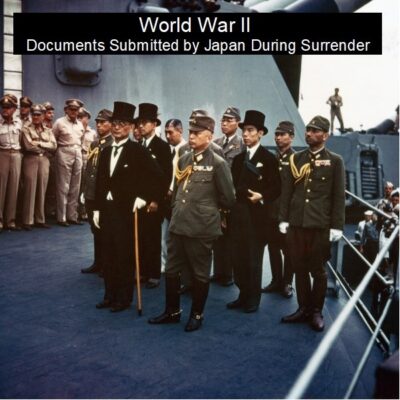
Japan’s Surrender Documents from World War II
$1.99 Add to Cart -
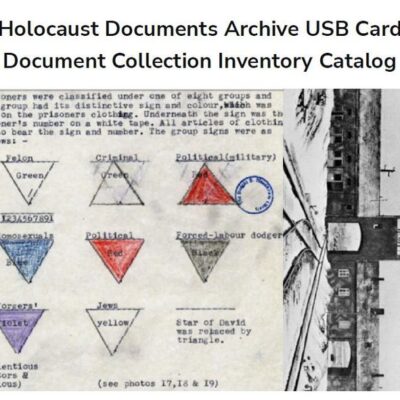
Holocaust Document Archive PDF file – Inventory Catalog of Document Collection
$3.94 Add to Cart -
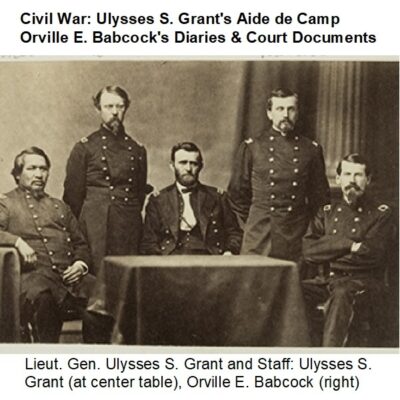
Civil War Ulysses S. Grant’s Aide de Camp Orville E. Babcock’s Diaries & Court Documents
$3.94 Add to Cart -


Operation POPEYE in the Vietnam War
$5.94 Add to Cart